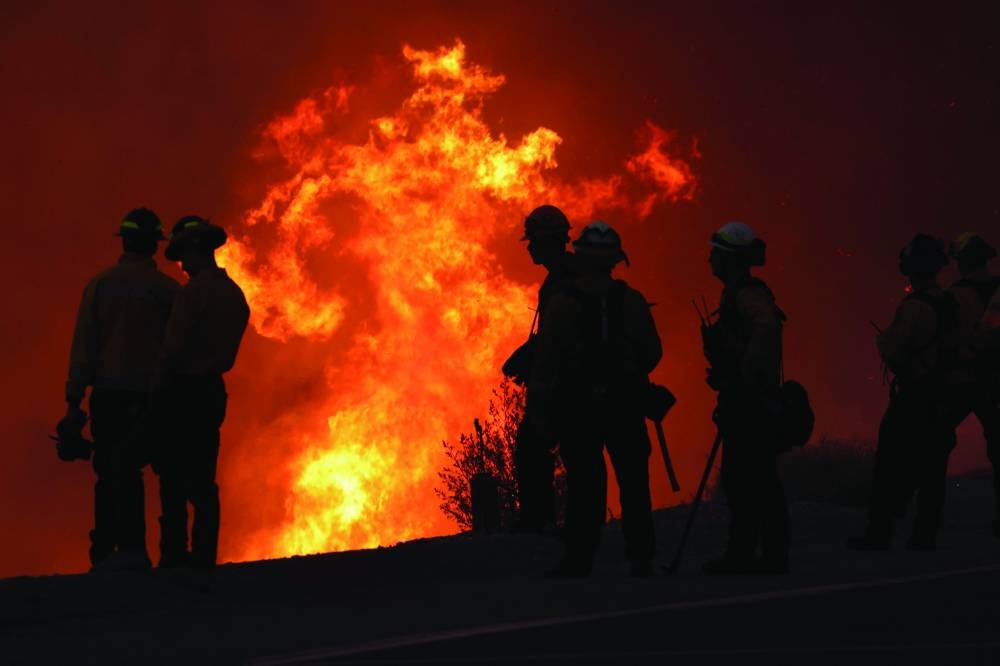
Firefighters monitor and set a controlled burn as the Rabbit Fire scorched over 7,500 acres in Moreno
Valley, Riverside County, California. (AFP)
An already rain-soaked New England braced for more downpours, with four people dead from flooding,
The NWS said parts of New England and the Mid-Atlantic areas will get hit with storms “capable of producing torrential rainfall” ahead of a cold front approaching from the west. The areas under risk include major cities like New York, Boston and Philadelphia.
“Given some parts of the Northeast contain saturated and sensitive soils from recent heavy rainfall over the past 10 days, this is a setup primed to produce flash flooding that could be significant in affected areas,” the NWS said in a Sunday morning forecast. New York Governor Kathy Hochul yesterday urged residents in her state to avoid travel until the rain passes, saying that “your car can go from a place of safety to a place of death” if swept up in a flash flood.
The NWS said the northeast could experience impassable roadways, tornadoes and even mudslides in some areas of higher terrain.
At least four people were swept away and killed by a flash flood
on Saturday in Upper Makefield Township in Pennsylvania, about 20 miles northeast of Philadelphia, local police said in a written statement. Rescuers said yesterday they are searching for another three people, including a nine-month old boy, his two-year-old sister and also a adult woman.
Flooding inundated the northeast in recent days, with Vermont in particular reporting catastrophic flooding in its capital Montpelier, which is under a flash flood warning again yesterday.
Outside of the northeast, the NWS forecast heavy rains for some stretches of the central plains and the middle Mississippi Valley, along with eastern Texas, some portions of Arkansas and Louisiana and parts of the Gulf Coast.
The heat warnings spread from the Pacific northwest, down through California, through the Southwest and into the Deep South and Florida.
Temperatures of over 115F (46C) are forecast for areas of southern California’s high desert, along with Arizona and Nevada. The NWS said widespread record-breaking high temperatures are likely to be recorded across the Southwest, in the western Gulf Coast and also in south Florida.
Temperatures between 100F and 110F are forecast for portions of the Pacific Northwest. That could be particularly dangerous for an area unaccustomed to excessive heat, as many homes do not have central air conditioning, according to data from the US Census Bureau.
The extreme heat in the US, with warnings for over 80mn people, is being caused by a mass of high pressure air sitting like a dome atop impacted areas, which blocks any rain storms from moving in to provide cooler weather, the NWS said.
Little relief from the heat is in sight.
“The combination of sizzling temperatures and oppressively high dew points will result in sultry heat throughout the South into the upcoming week,” the NWS wrote.
Scientists say fossil fuel-driven climate change is heralding more extreme weather like that seen in the US in recent days, warning that the world needs to drastically cut carbon emissions to prevent its catastrophic effects.
